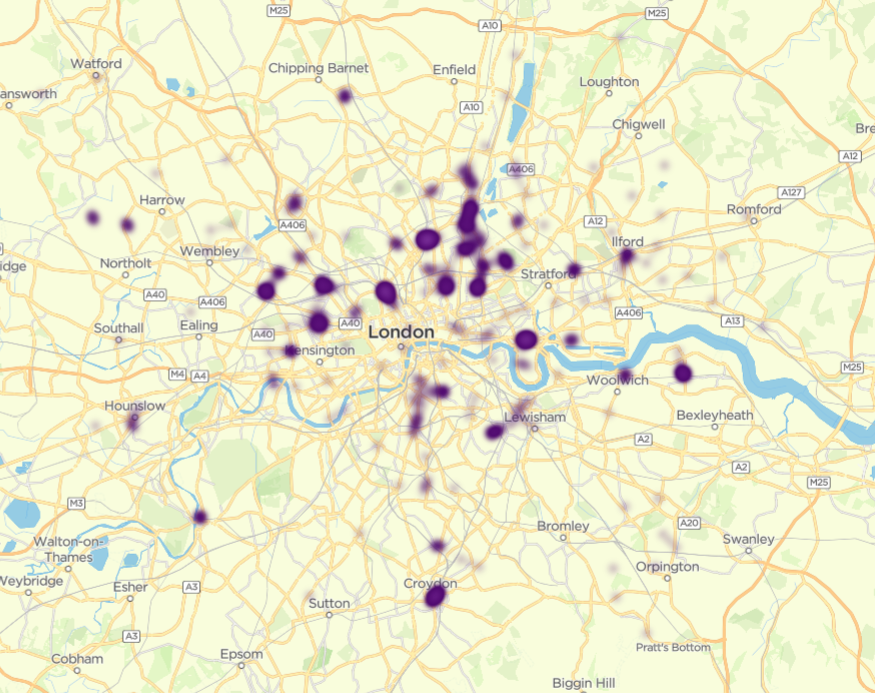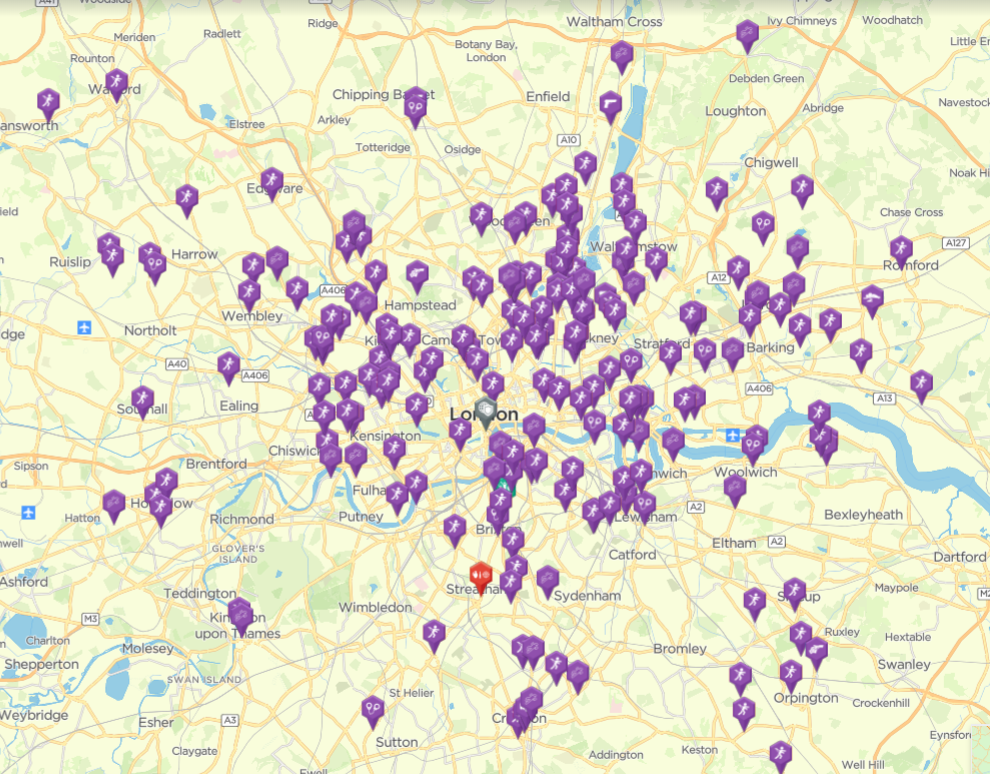What has caused London’s post-lockdown spike in violent crime?
Since the easing of lockdown measures across London, Intelligence Fusion has witnessed a significant increase in violent crime in the UK capital.
We’ve recorded over 60 murders within greater London in 2020 so far with the majority linked to gang conflict and drug crime. London Mayor, Sadiq Khan, has warned that crime could continue to spike as the lockdown restrictions continue to be lifted and has demanded that increased funds for youth services and police are sanctioned by Westminster.

One of the key trends this year is the migration of violent knife crime to areas that in prior years were less impacted by gang conflict such as Enfield, Orpington and even isolated incidents in the vicinity of the City of London. It’s anticipated that further violent incidents will likely occur in outer suburban areas of London as “county lines” drug trafficking continues to distribute drugs outside of central London and gangs clash over territory in those areas.
Routine gang conflict has been compounded by the recent inability of drug distribution networks to sell to clients in traditional venues such as bars and nightclubs due to the COVID-19 lockdown. As a response to this problem, illegal block parties and raves in residential areas of London have allegedly been organised and/or infiltrated by criminal groups in order to distribute their products. This in turn has caused police resources to become overburdened with attempting to break up and restrict these gatherings that are in breach of social distancing rules. Many of these block parties are held in ethnically diverse areas and are perceived by many party goers as racially motivated provocations by the police. This has only served to exacerbate tensions between black communities and the police after recent Black Lives Matter protests in London
With heightened media attention, accusations of racism and scrutiny of police in recent months, critics have pointed out that this has emboldened criminal groups freedom of movement to operate as police officers may be more reticent to challenge or stop and search a potential suspect if they can be accused of racial profiling.

Drug manufacturing and supplies within London were reportedly not majorly impacted during the lockdown with many products such as cannabis and amphetamines being manufactured and processed within the UK. Interceptions of cocaine shipments at the Port of Rotterdam, a gateway for the drug to enter Europe from South America, doubled in the first half of 2020. Customs officers confiscated more than twice as much cocaine as in the same period last year.
So far this year, 77 shipments with a total of 25,599 kilograms of cocaine were intercepted and seized, compared to 60 shipments with 12,160 kilograms of cocaine in the first half of 2019. Although authorities have stated that the increased interceptions are down to better and more intensive cooperation between police authorities it is also likely that drug smuggling shipments have increased as global countries struggle economically and individuals in more impoverished countries are forced into supporting criminal enterprises.
The economic impact of the COVID-19 outbreak has already led to increased unemployment within London and a reduction in opportunities for young people. Coupled with years of budget cuts and austerity measures, criminal groups are finding it relatively easy to recruit new members. Many vulnerable people, such as migrants and homeless people, have also been temporarily housed in hotels or hostels during the pandemic period which have made it easier for drug distributors to target and sell to users within those groups as they are concentrated and easy to locate. Dealers have also used locations of vulnerable people as a base of operations and to “Cuckoo” or occupy those locations rather than deal from the street. Dealers were also posing at key workers with fake or stolen IDs in order to obtain freedom of movement during the lockdown period.
During the pandemic period we’re also likely to witness an increase in petty crime in London as regular drug users lose jobs or struggle with limited employment opportunities. Unable to pay for drugs, many dependent users may be compelled to resort to theft from people and property in order to pay for the product.
As lockdown continues to be eased in the UK, businesses should be aware of the increased threats to their people, assets and operations. Without a substantial and relatively swift economic recovery, London is likely to witness a continuation of gang violence coupled with an escalation of petty crime in the short to medium period. Social unrest, long term unemployment and protests are likely to also continue as more and more groups are impacted by the economic climate further putting pressure on police resources already stretched by counter terrorism commitments and routine policing. A further threat of a £110 million budget cut by authorities on London police resources will only exacerbate the situation.
Using a threat intelligence platform that fuses cutting-edge technology with military-grade intelligence provides you with the tools and information you need to combat wide-rangng and fast-evolving threats as the security landscape in the UK detoriates. Learn how security and intelligence teams are using Intelligence Fusion to make better decisions, speak to the team today.
